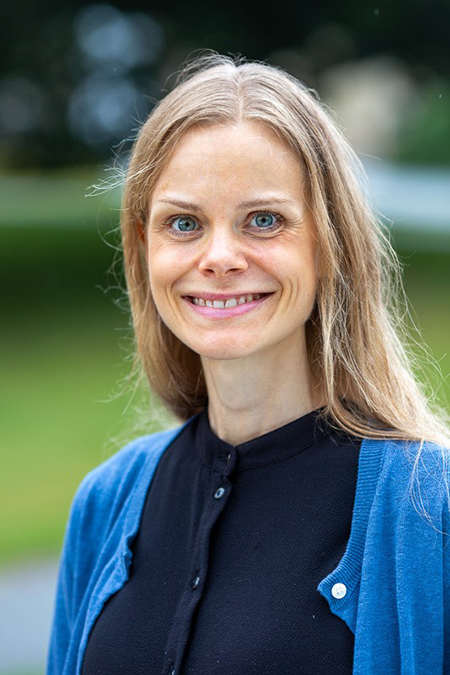Translating research into practice
Meet Cecilie Nørby Lyhne
“It’s important that we have a society that gives individuals an opportunity to thrive and live in accordance with their own values.”
How can we strengthen cross-disciplinary preventive interventions targeted at elderly people and people with chronic diseases? How do we prevent mental illness in young adults, so that they are able to complete an education, and successfully obtain and maintain participation in employment?
These are the kind of questions that Cecilie Nørby Lyhne and her colleagues ask themselves, when they are working on prevention in the field of nursing and public health. In working with prevention, Cecilie Nørby Lyhne is also concerned with the development of qualitative methods as a central tool in the advancement of public health and nursing science.
“One example is the use of qualitative content analysis in health science research. The method has been used in so many different ways that misunderstandings can arise about the actual method and its function and relevance. I’d like to contribute to clarifying this,” she explains.
Qualitative methods have great potential when we use them properly
Cecilie Nørby Lyhne became fascinated by qualitative methods during her studies at Aarhus University, Health.
“My interest was aroused, when I was taking the Bachelor’s degree programme in public health science. When I had the course ‘qualitative methods‘, I was immediately convinced that this was the path I would follow. I was hooked, and I still am. During my studies, I set up a research project together with my Bachelor supervisor, which brought me to an integrated PhD, and since then it has just led on from there,” says Cecilie Nørby Lyhne about her pathway into research.
She is particularly interested in the importance of trusting relations between people, and their mental health and well-being.
We can prevent acute hospitalisation with a targeted effort
Cecilie Nørby Lyhne is currently working to implement and evaluate the results of a research project on the prevention of acute hospitalisation among elderly people and people with chronic diseases. The results will now be tested in a cross-disciplinary team, which includes occupational therapists and physiotherapists, nurses and dieticians in the municipal sector. The hope is that, together, they will be able to qualify the local prevention efforts so that they become based on the individual’s entire life situation, and focus on more than just physical diseases and complications that you can scan and measure.
“I’m particularly enthusiastic about this part of the work, where research is translated into practice. It is extremely exciting to see as a researcher how new knowledge that you have helped develop can benefit society – and in this case support the municipalities in their preventive care practices,” says Cecilie Nørby Lyhne.
She dreams of contributing with new knowledge in areas of significance for nursing practice and disease prevention – and she would like to write even more articles on qualitative content analysis, which can contribute to development and clarification in the use of the method.
Cecilie Nørby Lyhne, born 1988, is also the initiator behind the Department’s Junior Researcher Forum.
